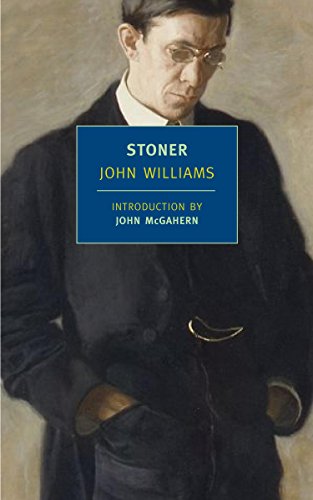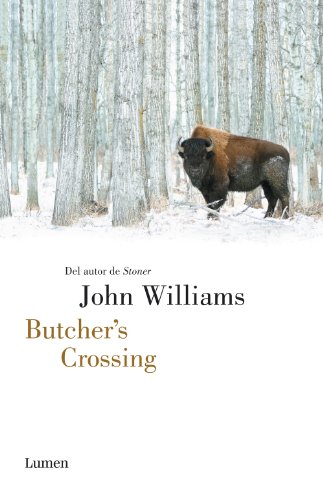The writer John edward williams is one more in the sum of examples of writers who discover the vocation for tell stories from the sum of experiences. And it is these writers who end up becoming free verses that they write when they want and how they want.
Let's say that when in the United States what was popular in the fifties and sixties of the 20th century was reading at Beat generation, (that literature in search of hedonism, in tune with the dirty realism of Bukowski and heir to the lost Generation of Hemingway o faulkner), other writers like Truman Capote or Williams himself spoke of the fact of writing for its own sake, to mitigate or transfer experiences, impressions or ideas.
And of course, John Edward Williams pointed out ways from a very young age, with his wayward character and the encounter with the ranks of the army as the only option to try to channel with that inveterate habit of enlisting to try to make a boy a man.
Without ever fully knowing if that served to macerate a more adult will, it did at least serve to weave the writer's wickers. Among his remote destinations as a sergeant, he outlined his first stories. Upon his return, John Edward gave himself a new opportunity to end up being a Doctor of English Literature.
Su fiction bibliography It is not very extensive. But each of his novels is an ode to perfection. Realism, historical fiction or even anthropological existentialism. It is always gratifying to read any of his books to discover the intense literary commitment of, as I said before, this loose verse in the history of literature.
Top 3 Recommended Novels by John Edward Williams
Stoner
There is no doubt that simplicity is even more enjoyable when one is besieged by general noise, high tunes or narrative bombast. And this is a novel with a simple plot. But with that elegance that ends up giving wings to the existentialism that underlies everyday life.
To meet William Stoner is to face the most relevant and at the same time the most universal decisions. William Stoner guides us through his life as if in that transit our future was also elucidated and the burden of guilt that ends up being loaded on all vital baggage.
But also in those everyday details there is a lot of resilience, of overcoming the most unfortunate omen that perhaps nothing makes sense or rather that nothing is in our hands once we choose an option. Stoner and his failed marriage, Stoner and his passion for a university that his father sent longing for his soon return. It is never easy to earn that desirable calm for any life.
But among the storms that appear on the horizon of Stoner we end up discovering the same aroma of humidity that approaches us, the same sensation of the drops that begin to wet our shirt just before being soaked in a realism that penetrates us to the depths .
Butcher's Crossing
The American West lived in the middle of the XNUMXth century a process of wild colonization that in some way has always been made up or even justified in western cinema.
Literature also did the same, pointing out the arrival to that other side of the United States as a necessary process. But in this case, Williams escapes from those settings and takes advantage of the scenery of a space still free from the Western lifestyle to present a brilliant plot.
It is an initiatory journey, an existential search by Will Andrews for a better place to live in the middle of nature. Among the outlaws who little by little are gaining ground on the Indians. Will meets buffalo hunter Miller. And together they enter the fertile valleys of that idyllic space.
Will seems to feel his dream palpable. But when the weather becomes adverse, precisely that overwhelming nature became demanding in order to survive. Miller, Will and the other two traveling companions will then face, above all, themselves.
Caesar's son
In Williams' unpredictable literary career we find this historical novel about one of the most turbulent times in the ancient world. The famous Ides of March, the days before the plan was closing on Julius Caesar.
The desire for power of so many men close to the highest levels of power for a republic that was still in its maximum splendor, but from which many sought to build an empire with a single emperor.
And it was precisely the son of Julius Caesar who was finally able to face his father's murderers to end up becoming emperor.
But the process was not so simple, the passage from the Republic to the Empire under the same seal of the heirs of Julius Caesar was only achieved with a bloodshed, among the great Roman men themselves, as had never been seen.



